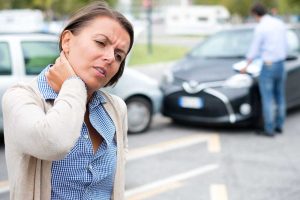The Rise of Driverless Cars: Opportunities and Challenges for Personal Injury Law
The emergence of driverless cars is transforming the transportation landscape, ushering in a new era of innovation and safety. While these vehicles promise to reduce accidents significantly, they also bring a host of legal and ethical questions that personal injury law must address. From redefining liability to navigating new insurance policies, the rise of autonomous vehicles presents both opportunities and challenges.
- The Role of Driverless Cars in Reducing Accidents: Driverless cars operate using advanced technologies such as artificial intelligence
- Who Is Responsible? Liability in a Driverless World: In traditional accidents, fault is usually assigned to one or more drivers based on negligence.
- Ethical Dilemmas in Programming Driverless Cars: The programming of autonomous vehicles involves difficult ethical decisions.
- The Insurance Industry and Driverless Cars: With driverless cars, the insurance focus may move away from individual drivers…
- Preparing for a Future with Fewer Personal Injury Cases: The reduction in accidents will likely lead to fewer personal injury claims…
- How Georgia Injury Advocates Can Help: Georgia Injury Advocates, we’re prepared to navigate the complexities of this evolving landscape.
Injured in a Car Accident?
Satisfied clients: 4.8 star +Google Reviews
To learn how we can help you with your case, please contact us.
The Role of Driverless Cars in Reducing Accidents
Driverless cars operate using advanced technologies such as artificial intelligence, sensors, and machine learning to navigate roads and avoid collisions. By eliminating human error—the primary cause of most accidents—these vehicles are expected to create safer roads and save lives.
Innovations That Improve Safety
- Real-Time Decision Making: Autonomous systems can process data and make split-second decisions, often faster and more accurately than human drivers.
- Adherence to Traffic Laws: Unlike human drivers, autonomous vehicles consistently obey speed limits, stop signs, and other traffic rules.
- Reduced Impairment Risks: Driverless cars eliminate risks associated with driving under the influence, fatigue, or distracted driving.
Not Accident-Proof
While driverless cars are designed for safety, they are not immune to risks. Software glitches, cybersecurity threats, and unexpected interactions with human drivers can still lead to accidents, raising questions about accountability and preparedness.
Who Is Responsible? Liability in a Driverless World
Shifting the Blame
In traditional accidents, fault is usually assigned to one or more drivers based on negligence. With autonomous vehicles, liability becomes more complex. Potential responsible parties include:
- Manufacturers: For defects in hardware or software.
- Software Developers: For coding errors or system failures.
- Vehicle Owners: For failing to maintain or update the vehicle’s software.
The Role of Shared Liability
In some cases, multiple parties may share responsibility. For instance, if a human driver overrides the autonomous system and causes a crash, both the driver and the manufacturer could be held liable.
Ethical Dilemmas in Programming Driverless Cars
The programming of autonomous vehicles involves difficult ethical decisions. For example:
- Collision Scenarios: How should the vehicle prioritize safety in an unavoidable crash? Should it protect the occupants at all costs or minimize harm to others?
- Data Privacy: Autonomous cars collect vast amounts of data. Who owns this data, and how should it be used?
These questions highlight the need for clear regulations and standards as the technology becomes mainstream.
The Insurance Industry and Driverless Cars
A Shift Toward Product Liability
With driverless cars, the insurance focus may move away from individual drivers and toward manufacturers and software developers. Policies will need to account for:
- System malfunctions.
- Cybersecurity breaches.
- Manufacturer recalls and updates.
Data-Driven Claims
Autonomous vehicles collect detailed data on every trip. This information can streamline claims processes, but it also raises concerns about privacy and data security.
Preparing for a Future with Fewer Personal Injury Cases
The reduction in accidents will likely lead to fewer personal injury claims, prompting law firms to adapt their practices. Emerging areas of focus may include:
- Product liability cases against manufacturers.
- Cybersecurity lawsuits involving hacked vehicles.
- Advocacy for data privacy and ethical programming.
How Georgia Injury Advocates Can Help
At Georgia Injury Advocates, we’re prepared to navigate the complexities of this evolving landscape. Whether you’ve been involved in an accident with a traditional vehicle or an autonomous one, our team is ready to help. We stay informed on the latest developments in driverless technology and personal injury law to ensure our clients receive the best possible representation.
📞 Call us today at (770) 766-0555 for a free consultation.
GA Injury Advocates
Latest posts by GA Injury Advocates (see all)
- TRUST is Our Core Value ⚖️💙 - November 6, 2025






